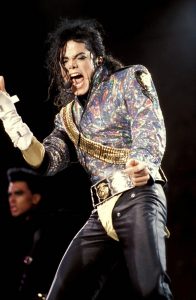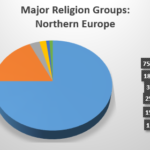Understanding Michael Jackson's Spiritual Journey: From Jehovah's Witness to Universal Faith

Introduction
Michael Jackson, the globally renowned ‘King of Pop,’ led a life marked not only by artistic innovation but also by a complex and evolving spiritual journey. While his public persona was shaped by music and performance, his private beliefs underwent significant transformation. This article provides a comprehensive exploration of Michael Jackson’s religious background, spiritual struggles, and how individuals curious about similar paths can access resources and guidance for their own journeys.
Early Religious Upbringing: Jehovah’s Witnesses
Michael Jackson was raised in the Jehovah’s Witness faith, a Christian denomination known for its distinct beliefs and practices, including door-to-door evangelism and a strong emphasis on humility and modesty. His mother, Katherine Jackson, was deeply committed to this religion, and Michael frequently accompanied her to church and participated in evangelistic activities. To avoid public attention, Jackson often disguised himself when engaging in these duties, and he reportedly endured difficult experiences that taught him humility, as many people would close the door in his face [1] .
Despite his fame, Jackson attempted to live by the teachings of Jehovah’s Witnesses, sometimes modifying his performances to appease religious elders. However, the increasing tension between his celebrity status and the church’s expectations led to significant conflict. Ultimately, Jackson was forced to choose between his faith and his career-a decision that left him emotionally devastated [2] . In 1987, he officially left the organization, a move that was both personal and public, marking the end of his formal association with Jehovah’s Witnesses.

Source: depositphotos.com
Spiritual Search and Exploration
After departing from Jehovah’s Witnesses, Jackson embarked on a spiritual search , exploring a variety of world religions and philosophical traditions. He read the Torah (central to Judaism), the Koran (Islam’s holy book), and studied Eastern philosophies, demonstrating a genuine curiosity about different approaches to faith and the divine [1] . Jackson came to the conclusion that “God is the same for everyone and that only the way one saw Him differed.” This universal perspective reflected his growing belief in the unity of the spiritual experience across cultures and traditions.
For those interested in exploring their own spirituality beyond a single religious tradition, consider visiting your local library for books on comparative religion, searching for community interfaith groups, or attending lectures at nearby universities. Many organizations offer introductory courses online through verified platforms such as Coursera, edX, or Khan Academy, where you can study world religions with reputable educators.
Attraction to the Catholic Church
Jackson’s spiritual journey included a notable encounter with Catholicism. In 1988, while in Rome for a concert, he was drawn to the sound of Schubert’s “Ave Maria” emanating from a church. Intrigued, he entered the church, spoke with a young curate, and expressed admiration for the beauty of Catholic music and ritual. He later attempted to organize a charity concert at the Vatican, demonstrating his respect for the Catholic Church and its leadership, especially Pope John Paul II, whom he described as a “beacon of light and hope” [1] .
If you wish to learn more about Catholicism, you may visit official Catholic diocesan websites, attend public masses, or speak with local parish priests. For general information, the official website of the Vatican ( https://www.vatican.va/ ) provides resources about Catholic beliefs, liturgies, and global initiatives. Always confirm the authenticity of church-run programs by contacting your local Catholic diocese directly.
Spirituality in Later Life
In his later years, Michael Jackson did not publicly affiliate himself with any single organized religion. He described himself as a spiritual person, practicing meditation and expressing knowledge of many different religions, including Judaism, Buddhism, and Christianity [5] . Jackson’s spirituality became more personalized, focusing on universal love, compassion, and the interconnectedness of all people.

Source: thestudyaide.blogspot.com
This approach is common among individuals who, after leaving an organized faith, seek meaning through meditation, mindfulness, and interfaith studies. To begin your own journey, consider guided meditation sessions locally or online, join spiritual discussion groups through platforms like Meetup, or explore interfaith events hosted by religious studies departments at universities.
Practical Steps for Spiritual Exploration
For those inspired by Michael Jackson’s spiritual exploration, here are actionable steps to begin your own journey:
- Self-Reflection : Begin by reflecting on your current beliefs and experiences. Journaling can help you clarify questions or areas of curiosity.
- Research : Utilize public libraries, verified online courses, and reputable websites to learn about different religions and philosophies.
- Community Engagement : Attend services, talks, or seminars at local churches, synagogues, mosques, or temples. Interfaith groups often welcome newcomers and encourage dialogue.
- Seek Guidance : If you desire personal mentorship, consider reaching out to spiritual leaders or counselors who have experience guiding individuals through religious transitions. Always verify credentials and organizational affiliations.
- Practice : Experiment with prayer, meditation, or mindfulness exercises to deepen your spiritual experience.
- Alternative Approaches : If organized religion does not resonate, explore philosophical societies, humanist organizations, or artistic communities that focus on spirituality and self-expression.
Potential Challenges and Solutions
Leaving an organized religion or embarking on a spiritual journey can present emotional and social challenges. Many individuals face isolation or criticism from family and community, as Michael Jackson did. Jackson’s experience highlights the importance of seeking supportive environments and trusted mentors. If you encounter such challenges:
- Consider joining support groups tailored for former members of religious organizations. Many are accessible through sites like Meetup or local counseling centers.
- If privacy is a concern, seek online forums with verified moderation, such as Reddit’s r/exchristian or interfaith discussion boards.
- Professional counselors who specialize in religious transitions can offer confidential guidance; search for licensed therapists via Psychology Today or similar directories.
Conclusion: Key Takeaways
Michael Jackson’s religious journey exemplifies the profound personal transformation that can arise from questioning, exploring, and ultimately redefining one’s spiritual beliefs. From his roots as a Jehovah’s Witness, through his admiration for Catholicism, to a universal perspective on faith, Jackson’s story offers valuable lessons for anyone considering a similar path. By approaching spiritual exploration thoughtfully, using verified resources, and engaging with diverse communities, individuals can find meaning, connection, and personal peace.
References
- [1] Exaudi (2024). Michael Jackson’s hidden faith and his spiritual journey to Catholicism.
- [2] YouTube: the detail. (2023). Why Michael Jackson DROPPED Religion & EXPELLED…
- [3] YouTube: the detail. (2023). Michael Jackson on God & Views on Religion In His Own Words.
- [5] MJJCommunity (2024). Was Mr. Michael Jackson a Christian?






